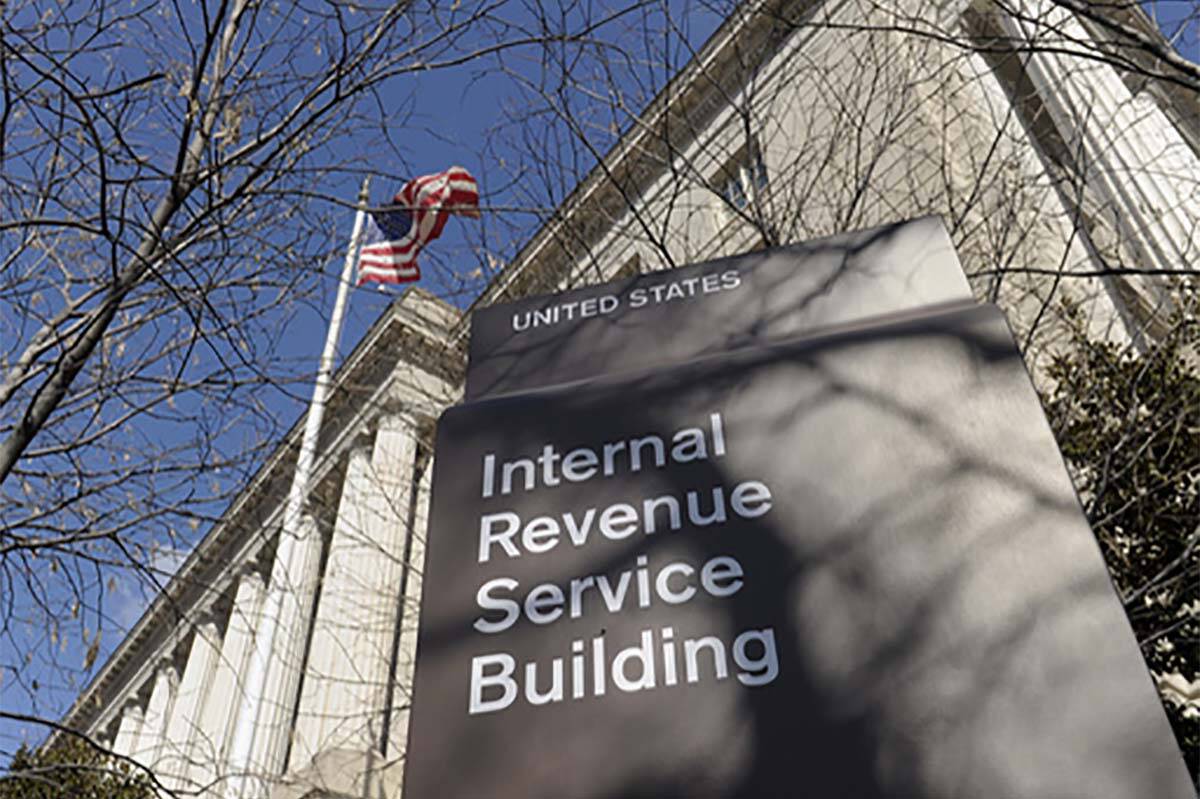EDITORIAL: IRS gets financial windfall, but keeps same old stripes
Congressional Democrats last year showered the IRS with $80 billion in new funding in an effort to close an estimated $600 billion “tax gap,” the difference between income taxes actually owed and those actually collected. This was supposed to help pay for the Biden administration’s ongoing spendapalooza that has run the national debt to more than $30 trillion.
The move will essentially double the size of the IRS in coming years, allowing it to hire 87,000 employees over the next decade — many of whom would replace outgoing staff — and increasing its enforcement capabilities. Republicans warned that more middle- and lower-income Americans would find themselves in the agency’s sights, but Democrats insisted that only wealthy Americans would face an increase in audits.
Yet a recent examination of IRS data shows that the agency in 2022 “continued historic trends of hassling primarily low-income taxpayers,” Liz Wolfe of Reason wrote last week, “with relatively few millionaires and billionaires getting caught up in the audit sweep.”
The numbers come from Syracuse University’s Transactional Records Access Clearinghouse, which found that the “taxpayer class with unbelievably high audit rates — five and a half times virtually everyone else — were low-income wage-earners taking the earned income tax credit.”
Supporters of the IRS funding boost argue — in the words of ProPublica report — that the bureaucracy was on “life support” because of years of fiscal starvation and that the agency will now have the resources necessary to redirect its attention to millionaires and billionaires. But there’s no reason to believe this will be true in practice, given the tendency of most public bureaucracies to follow the path of least resistance. In the case of the IRS, that means concentrating on simpler returns rather than putting the microscope on wealthy taxpayers with their bevy of accountants and attorneys.
Whether that’s fair is irrelevant to the reality of how the IRS functions.
The danger “with any enhanced IRS efforts, if they don’t come with strict oversight and strict requirements from Congress,” Andrew Lautz of the National Taxpayers Union told Reason, “is that they fall hardest on low- and middle-income taxpayers.” And, as Mr. Lautz noted, the agency’s new money comes with virtually no accountability measures.
Even if the IRS in coming years more aggressively targets high-earning Americans, the idea that workers of more modest means won’t also face increased scrutiny is risible — as is the idea that stepped-up enforcement will create a windfall for the Treasury. The 2022 data show the agency remains focused on taxpayers that its auditors believe they can handle. And there’s no reason to think that will change any time soon.

















